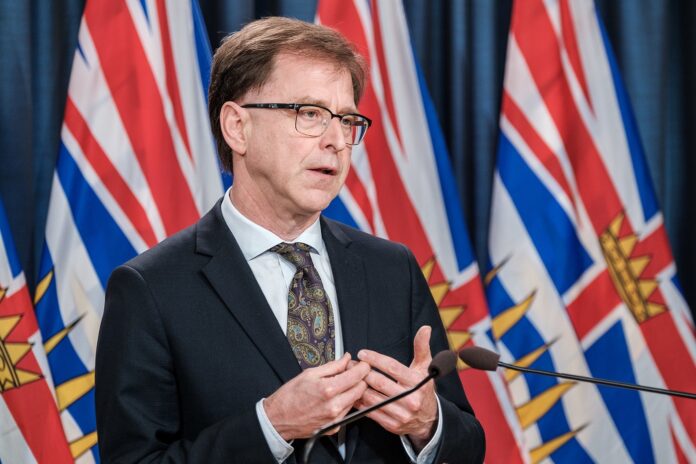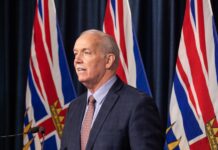Approximately 3,480 family doctors who have their own practices and 1,100 family doctors working in walk-in clinics are expected to receive funding
THE Ministry of Health and Doctors of BC are providing $118 million in stabilization funding to family doctors throughout British Columbia to help them ensure their patients have continued access to primary care services.
Jointly developed in partnership with Doctors of BC, the funding is part of an expansion of B.C.’s primary care strategy, which includes the development of a new compensation model that will be announced this fall.
“Ensuring British Columbians get the ongoing primary care they need means supporting B.C.’s family doctors in the ways that help them provide the quality care patients rely on,” said Adrian Dix, Minister of Health, on Wednesday.
“Rising operational costs are affecting their ability to provide patient care, and we’ve been working closely with Doctors of BC to find solutions. This interim stabilization funding to family doctors is a key action in supporting their care to patients as we work to finalize a long-term solution this fall.”
The funding comprises $75 million from the Ministry of Health and $43 million from the General Practices Services Committee, a collaborative committee co-chaired by the Ministry of Health and Doctors of BC that was established through the physician master agreement.
This short-term funding will be for four months, from October 1 to January 31, 2023, and will support family doctors and medical clinics with their operational business costs. It is part of a multi-phased approach to help protect and improve B.C.’s health-care system.
“This is an important first step to help doctors keep their practices open for patients over a four-month period until we have a longer-term solution to the very real problems in primary care,” said Dr. Ramneek Dosanjh, President of Doctors of BC.
“There is still hard work ahead of us to achieve a new payment model that recognizes the pressures of rising business costs and that recognizes the value of family physicians and the time and complexity of providing longitudinal patient care. We want to ensure that everyone has a family doctor who can provide them with the quality care they need and deserve.”
The funding is available to family doctors who provide ongoing services to their patients and who pay overhead costs. As well, primary care clinics, including walk-in clinics, that commit to remaining open and maintaining consistent clinic hours can apply for funding on behalf of the clinic and doctors working in it.
Approximately 3,480 family doctors who have their own practices and 1,100 family doctors working in walk-in clinics are expected to receive funding. That represents more than 70% of family doctors working in the province.
“Family doctors are the foundation of our primary care system, and supporting family practice clinics is at the core of our province’s primary care strategy and the commitment it makes to patients,” said Dix. “Working with Doctors of BC, family doctors and other partners, we will build upon and strengthen primary care services for patients, taking the short- and long-term actions required to ensure certainty and confidence.”
The Province and Doctors of BC continue to collaborate to achieve a new physician master agreement and a new compensation model for longitudinal family physicians, both of which are expected to be announced in the fall. While discussions are underway, general agreements have been reached on key components of the new payment model, including the time spent by family physicians providing primary care services, patient encounters, complexity and attachment.
The Ministry of Health is also developing measures to support and improve access to primary care, including improving recruitment and retention of health-care providers and providing additional resources to increase training capacity.












